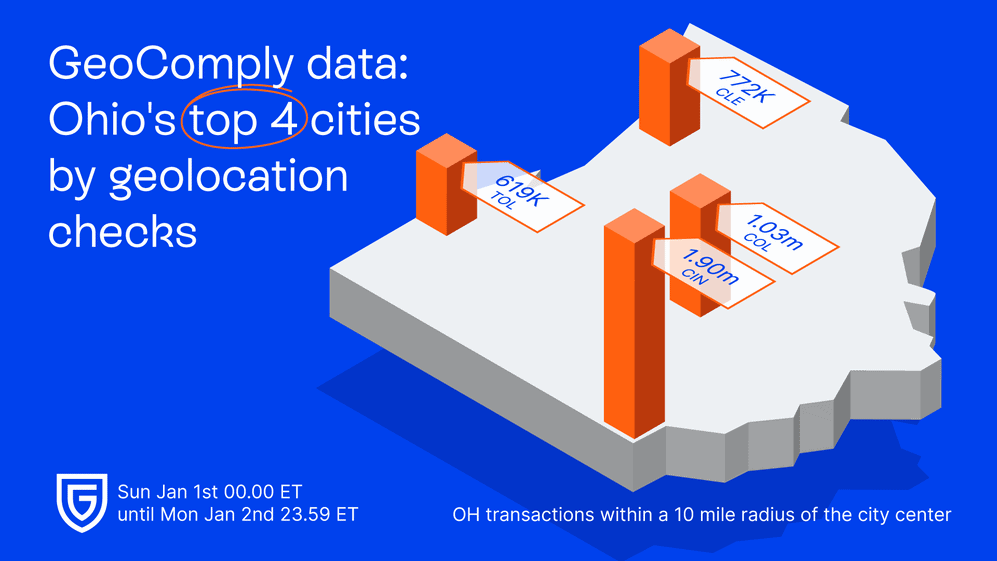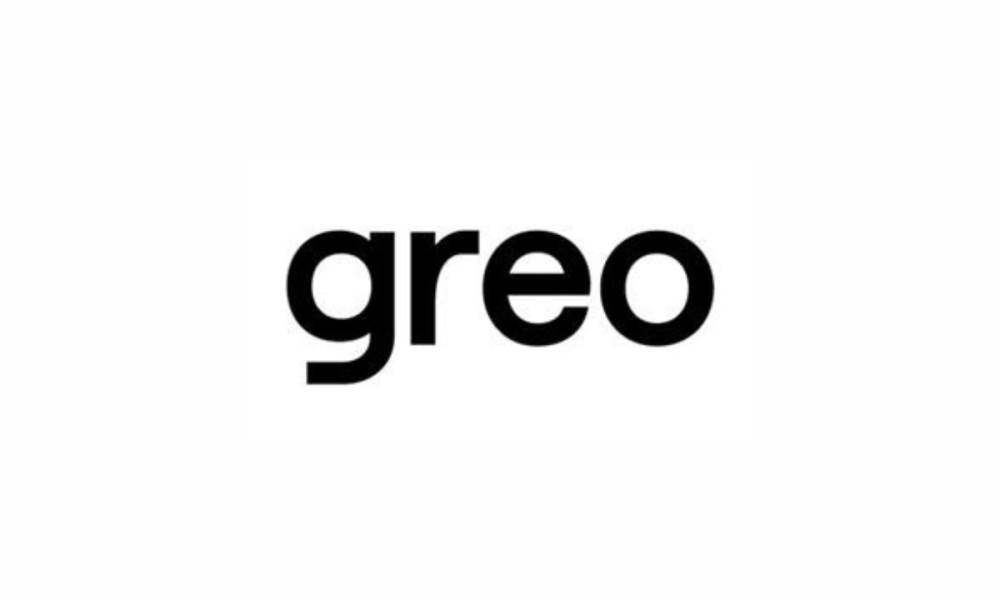Canada
Ohio welcomes new era of consumer protection with launch of regulated sports betting

Ohio has successfully launched its regulated online sports betting market with education, war veterans, and problem gambling programs set to benefit from the taxes generated by the newly-legalized industry.
GeoComply, a leader in geolocation and anti-fraud solutions for the US iGaming industry, recorded 11.3m geolocation transactions in Ohio over the course of New Year’s weekend. The impressive start vaulted Ohio to the top of the list of states with the most geolocation volumes recorded by GeoComply over the New Year’s weekend, even surpassing New York.
GeoComply SVP of Compliance Lindsay Slader commented: “We are thrilled to welcome another state into the regulated online sports betting sector. As expected, residents of the Buckeye State enthusiastically greeted the market at the moment the calendar changed over to 2023.”
“Today, about 44 percent of the American population can bet online with legal and responsible operators. The launch of regulated online sports betting in Ohio will better protect its citizens, with an increased commitment to responsible gambling and new funding for critical state programs,” Slader added.
GeoComply is the trusted provider of geolocation verification and fraud-prevention solutions for approved Ohio online sports betting operators, and its data provides a unique view of the Ohio market since it launched on January 1st.
Ohio betting action on January 1st and 2nd, based on GeoComply’s data:
- 17 operators
- 784k unique accounts
- 11.3m geolocation transactions
- 234k geolocation transactions during the first hour on New Year’s Day
Ohio’s New Year launch pushed it straight to the top of the US market over the holiday weekend.
According to GeoComply’s data, Cincinnati proved to be the busiest city, with 1,898,000 geolocation transactions. Columbus trailed despite having the largest population, with 1,033,000 transactions. Cleveland recorded 772,000 transactions, and Toledo recorded 619,000.
GeoComply has a unique view of the US online sports betting market as the trusted geolocation supplier for the majority of the regulated online sports betting operators in the US. GeoComply’s data does not purport to be definitive or represent the entire market in Ohio or any other jurisdictions but is intended to provide general insights into relevant market dynamics.
Powered by WPeMatico
Canada
Greo and CCSA Release New Report Named “Gambling Availability and Advertising in Canada: A Call to Action”

Recent gambling policy changes in Canada have led to increased opportunities to legally bet on sports and gamble online, 24 hours a day, seven days a week. The report “Gambling Availability and Advertising in Canada: A Call to Action” looks at the impacts of legal gambling in Canada since the approval of the Safe and Regulated Sports Betting Act in 2021. The report recommends developing a pan-Canadian strategy to address gambling-related harms. This is a new report by Greo Evidence Insights (Greo) and the Canadian Centre on Substance Use and Addiction (CCSA).
This call to action is in response to the significant increase in gambling advertising on billboards, social media, at commercial breaks during sports broadcasts and during sporting events. Increased gambling availability and advertising are expected to contribute to increased gambling in Canada, thereby posing a significant risk of harms among the general population, particularly for youth, young adults and other vulnerable populations.
The report also describes how the increased availability of gambling and in gambling advertising are of great concern because:
- The types of gambling being made available and promoted (single-event sports betting and live or in-play betting) are associated with a greater risk of harm. For example, single-event sports betting increases gambling intensity and gives an illusion of control over the outcome as people believe their knowledge of the game gives them a competitive edge.
- The volume of gambling advertisements repeatedly pairing sports with betting normalizes gambling, leading people to think of betting as an integral part of being a sports fan.
- Increased availability of gambling and in gambling advertising are happening at a time when many people in Canada are more vulnerable to problematic gambling and gambling-related harms because of the lingering health impacts of COVID-19 and a rise in the cost of living.
“Over the last few years, we have witnessed some of the most significant changes in gambling policy since the 1970s. We have seen a massive increase in gambling advertising and opportunities to gamble. We can no longer watch sports with our kids or go online without being subjected to an overwhelming amount of gambling advertising. Canada is at a critical moment in how it manages gambling. A national strategy or framework — similar to what we have for alcohol, tobacco and cannabis — is critical to manage the expected increase in gambling harm, especially among youth and other vulnerable people,” explained Dr. Matthew Young, Chief Research Officer at Greo, Senior Research Associate at the CCSA and Adjunct Professor at Carleton University.
The report recommends developing a national strategy that will:
- Develop national standards governing the promotion and availability of gambling;
- Manage conflicts of interest among gambling stakeholders;
- Address inadequate funding for gambling harm prevention and reduction initiatives and research;
- Monitor systematic changes in gambling-related harm, including any assessments of the social and economic costs of gambling; and
- Increase awareness of gambling-related harms among health and social service professionals and the public.
“Increased gambling among people living in Canada will undoubtebly result in increased harms and therefore increased societal costs. These include healthcare costs, criminal-justice costs, child welfare costs, increased unemployment and lost productivity costs because of gambling-related suicide. We need to think about our approach and ensure that it considers not only short-term government revenue and economic activity but also the longer-term societal costs. That’s why we need a national strategy,” Dr. Pam Kent, Director of Research and Emerging Trends at CCSA, said.
Canada
Call for a National Strategy to Address Gambling-Related Harms in Wake of Sports Betting Boom

Recent gambling policy changes in Canada have led to increased opportunities to legally bet on sports and gamble online, 24 hours a day, seven days a week. Released today, Gambling Availability and Advertising in Canada: A Call to Action looks at the impacts of legal gambling in Canada since the approval of the Safe and Regulated Sports Betting Act in 2021. The report recommends developing a pan-Canadian strategy to address gambling-related harms. This is a new report by Greo Evidence Insights (Greo) and the Canadian Centre on Substance Use and Addiction (CCSA).
This call to action is in response to the significant increase in gambling advertising on billboards, social media, at commercial breaks during sports broadcasts and during sporting events. Increased gambling availability and advertising are expected to contribute to increased gambling in Canada, thereby posing a significant risk of harms among the general population, particularly for youth, young adults and other vulnerable populations.
The report also describes how the increased availability of gambling and in gambling advertising are of great concern because:
- The types of gambling being made available and promoted (single-event sports betting and live or in-play betting) are associated with a greater risk of harm. For example, single-event sports betting increases gambling intensity and gives an illusion of control over the outcome as people believe their knowledge of the game gives them a competitive edge.
- The volume of gambling advertisements repeatedly pairing sports with betting normalizes gambling, leading people to think of betting as an integral part of being a sports fan.
- Increased availability of gambling and in gambling advertising are happening at a time when many people in Canada are more vulnerable to problematic gambling and gambling-related harms because of the lingering health impacts of COVID-19 and a rise in the cost of living.
“Over the last few years, we have witnessed some of the most significant changes in gambling policy since the 1970s,” explained Dr. Matthew Young, Chief Research Officer at Greo, Senior Research Associate at the CCSA and Adjunct Professor at Carleton University. “We have seen a massive increase in gambling advertising and opportunities to gamble. We can no longer watch sports with our kids or go online without being subjected to an overwhelming amount of gambling advertising. Canada is at a critical moment in how it manages gambling. A national strategy or framework — similar to what we have for alcohol, tobacco and cannabis — is critical to manage the expected increased in gambling harm, especially among youth and other vulnerable people.”
The report recommends developing a national strategy that will:
- Develop national standards governing the promotion and availability of gambling;
- Manage conflicts of interest among gambling stakeholders;
- Address inadequate funding for gambling harm prevention and reduction initiatives and research;
- Monitor systematic changes in gambling-related harm, including any assessments of the social and economic costs of gambling; and
- Increase awareness of gambling-related harms among health and social service professionals and the public.
“Increased gambling among people living in Canada will undoubtebly result in increased harms and therefore increased societal costs. These include healthcare costs, criminal-justice costs, child welfare costs, increased unemployment and lost productivity costs because of gambling-related suicide,” says Dr. Pam Kent, Director of Research and Emerging Trends at CCSA. “We need to think about our approach and ensure that it considers not only short-term government revenue and economic activity but also the longer-term societal costs. That’s why we need a national strategy.”
AGCO
Edict Egaming Secures Approval for Ontario Licence

Edict egaming has received approval from the Alcohol and Gaming Commission of Ontario (AGCO) to provide its games for the online casino market in the Canadian province. This applies to both the German edict egaming GmbH and Edict Malta Limited. From now on, the Merkur Group subsidiary will be able to offer its popular Merkur slots in one of the largest North American markets.
“We are delighted to have received AGCO approval for our Merkur games in Ontario. This is definitely a big step for edict and we are very excited to showcase ourselves to new audiences on the global stage in this dynamic market,” Dominic-Daniel Liénard, CEO of edict egaming GmbH, said.
The AGCO is working with the Government of Ontario and iGaming Ontario (iGO) to establish a new online gaming market that helps protect consumers gambling through private gaming companies. This license certifies that edict operates within the framework of strict laws and meets the requirements for responsible gaming.
-
Uncategorized3 days ago
Musburger Media Purchases VSiN, The Sports Betting Network
-
Uncategorized2 days ago
GGPoker & Triton Poker Offer High-Roller And Super-High-Roller Events At 2024 WSOP Paradise
-
Uncategorized3 days ago
Betmotion unveils ‘Jogos do Betmotion’ competition to celebrate 2024 Olympics
-
Uncategorized2 days ago
Arizona Department of Gaming Releases May Sports Betting Figures
-
Uncategorized3 days ago
GGPoker & Triton Poker Offer High-Roller And Super-High-Roller Events At 2024 WSOP Paradise
-
Uncategorized1 day ago
QTech Games recruits David Camacho to take the lead for LatAm markets
-
Uncategorized1 day ago
QTech Games recruits David Camacho to take the lead for LatAm markets
-
Uncategorized1 day ago
QTech Games recruits David Camacho to take the lead for LatAm markets





